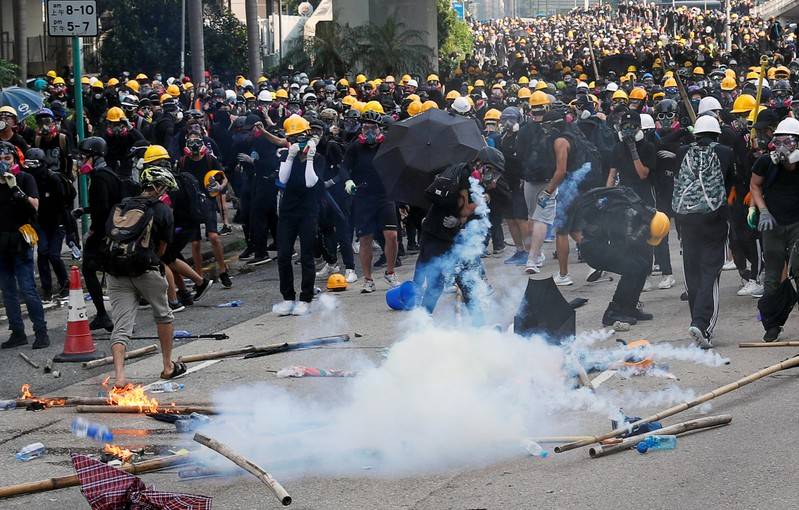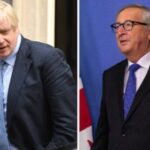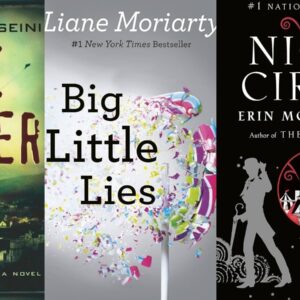Police fire tear gas, water cannon after protesters hurled petrol bombs, set fires and clashed with residents on Sunday in Hong Kong. More than 1,000 people have been arrested.
Initially, the march was peaceful with the chants of “five demands, not one less” rang through the streets of central Hong Kong in the early afternoon as tens of thousands of demonstrators again defied a police ban to stage a large march through the city.
Tensions began escalating before sundown, when hundreds of protesters who splintered off, throwing rocks and Molotov cocktails, and smoke bombs at police barricades outside government buildings.
This prompted riot police to respond with multiple rounds of teargas as well as water cannon that covered demonstrators in blue dye, meant to help identify protesters for arrest later.

In a statement, the police said they deployed teargas, rubber bullets, sponge rounds and “crowd management vehicles” on demonstrators participating in an “unauthorized assembly”. It also said two police officers withdrew pistols at one point when they were attacked by around 20 protesters who hurled petrol bombs at them.
The Hong Kong government issued a late-night statement “severely condemning the violent acts which totally disregard law and order.”
Sunday’s clashes came after ugly scenes of brawls between anti-government and pro-Beijing demonstrators on Saturday, marking the 15th consecutive weekend of mass protests that have roiled Hong Kong for the last three months.
Police had denied a permit for the march on Sunday, but thousands of people attended anyway, marching from Causeway Bay and Central, the main business and commercial district.
“Please tell the world,” said Lo, 41, who lives in Fortress Hill, where bystanders yelled at the police to leave. “We are suffering. We are scared every day when the police come out.”
The months of unrest were sparked by a proposed extradition bill, which would have made it possible for people in Hong Kong to be extradited to mainland China. Critics said they could have faced human rights abuses.
>Juthy Saha












